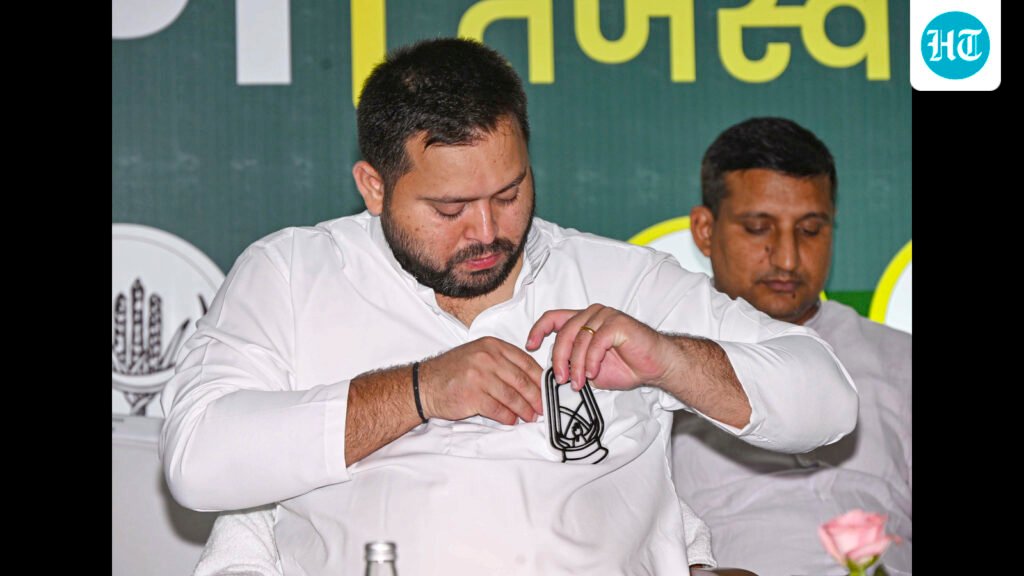
The scale of the National Democratic Alliance (NDA)’s sweep and the Mahagathbandhan (MGB)’s collapse comprehensively tells the story of the 2025 Bihar assembly polls: Every division that once mattered in the analysis of election results in the state has been flattened.

While the NDA’s constituents lifted each other and breached the Opposition’s strongholds, every MGB partner dragged the alliance down. The result? The Congress and Left together could not cross double-digits in terms of seats won. MGB deputy chief minister (CM) candidate Mukesh Sahani’s Vikassheel Insaan Party (VIP) didn’t win even one. Even Rashtriya Janata Dal (RJD)’s Tejashwi Yadav — the Opposition alliance’s CM face — struggled to win his party’s traditional stronghold of Raghopur. The BJP, on the other hand, has for the first time emerged as the single-largest party in the Bihar assembly. Janata Dal (United) doubled its seat tally from 2020. The other smaller constituents of the NDA — the Lok Janshakti Party, Hindustani Awami Morcha, and the Rashtriya Lok Samta Party — recorded an impressive strike rate.
Was an MGB defeat inevitable? Six months ago, the NDA looked more shaky. Questions swirled around CM Nitish Kumar’s ability, longevity, and even coherence. Unemployment and migration were burning issues. Rahul Gandhi and Tejashwi Yadav had galvanized their base with the Vote Adhikar Yatra. Yet, the RJD landed its worst seat tally since 2005. Why?
Like all political heirs, Tejashwi began with an advantage: A solid social coalition built by his father, Lalu Prasad, and the vocabulary of social justice and secularism. But he inherited the rot too — the “jungle raj” stigma, the party’s Yadav-first image, and Bihar’s memories of extortion and disorder when the RJD held office. In Bihar, social justice and secularism had become inseparable from corruption and state failure. Other dynasts such as Hemant Soren, Naveen Patnaik, MK Stalin, and Omar Abdullah took their family legacy forward. They all led their parties to victory. Some like Akhilesh Yadav may be struggling, but none seem to have failed like Tejashwi has.
To be fair to Tejashwi, no other dynasty has to battle such deep entrenchment of a perception of misrule by his family and his party among the public. Even as he rose as the face of the party’s future, the party’s past — one defined by the “15-years-of-misrule” narrative — hung like an albatross from his neck. But it is not this narrative alone that Tejashwi has had to battle. Rarely has a dynasty become the deputy CM of a state at 25, and that is where Tejashwi’s political inexperience has been most vulnerable to attacks. To illustrate, even if Prashant Kishor’s Jan Suraaj Party didn’t win a single seat, his relentless attacks on Tejashwi’s educational claims and the RJD’s family-first, caste-centered politics pierced the RJD’s armour. The 2.5-crore-jobs promise — Tejashwi’s “strongest” offer — became a self-inflicted wound; it looked poorly thought-out and became the laughing stock in the media.
The RJD talks about social justice, but rarely practices social inclusion. Candidate selection remained largely Yadav-heavy, and organizational positions stayed within the loyalist circle. It seems that the outreach to other communities was subcontracted to alliance partners. The Samajwadi Party in Uttar Pradesh learned this lesson in 2024; the RJD did not. A caste coalition does not expand vote-share on rhetoric — it expands on candidate nomination and trust. And then came the shocker. In 2020, the Hyderabad-based AIMIM’s victory in Muslim-dominated seats was dismissed as an accident; This time, for the first time since its inception, the RJD will enter the assembly with fewer Muslim legislators than a rival party. The AIMIM’s success proves that the RJD can no longer take the Muslim vote for granted.
Tejashwi seems to have either miscalculated both the nature of political competition and the social churning in Bihar in the past decade, or perhaps does not have an answer to the more formidable combination (in every sense) on the other side of the political spectrum. His main opponent, Nitish Kumar, cannot be painted as an anti-social justice politician and has also carefully cultivated support among women voters over the past two decades through his policies. Furthermore, the RJD, as an Opposition party, is likely to be at a disadvantage when it comes to cash transfer schemes that incumbents across parties have been able to execute right before elections. This is not to suggest that the cash transfer scheme alone won the election, but it may have neutralized anger just enough to blunt any anti-incumbency that may have gathered momentum.
Long years out of power make every party desperate. Desperation breeds contradictions, insecurity, and all kinds of inefficiencies. The AIMIM had signaled its willingness to join the MGB, but the RJD rightly saw it as a rival for Muslim votes. Many young leaders within the MGB, such as Kanhaiya Kumar, have not been given enough space in Bihar politics as the Yadav family worries that he may emerge as a challenger to Tejashwi. Candidate selection within the MGB dragged on till the last hour. Eleven seats saw MGB vs MGB contests. Allegations of ticket-selling flew thick and fast. The Congress refused to declare Tejashwi their CM face — symbolic, yes, but also a sign of deep mistrust. And the Yadav family feud quietly simmered beneath the surface.
After two decades of being largely out of power, the RJD is worn out, internally frayed, and externally constrained. While the party will blame external factors or the MGB’s other constituents underperformed” (since the RJD has held its own vote share) for the MGB’s failure, the hard truth is that the RJD was defeated by its own complacency long before it was defeated at the booth.
Tejashwi does have age on his side, and being the leader of the Opposition, he may have his day in office sooner or later. But age is not a strategy, and time is not a winning campaign platform. He may rise. But that needs honest admission of shortcomings rather than shifting the blame. Or else, the wait could be in perpetuity.
Rahul Verma is associate professor of political science at the Shiv Nadar University, Chennai, and fellow, Center for Policy Research (CPR), New Delhi. The views expressed are personal






